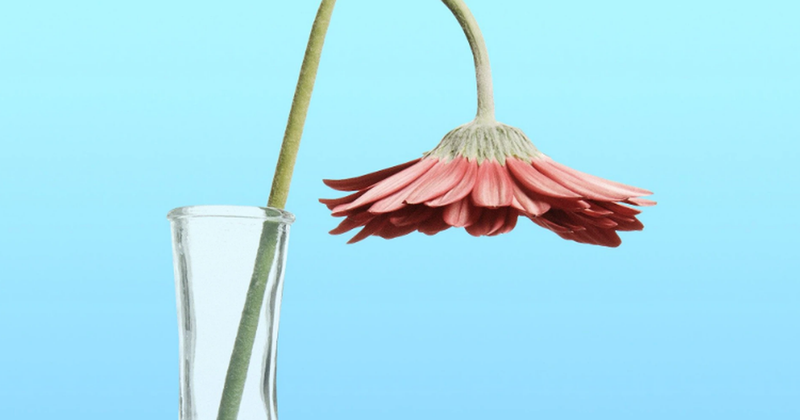
Six signs that show you're not drinking enough water


When was the last time you drank water properly? We all know we should drink more water, however, it is recommended to drink six to eight glasses a day, a recent study from PureGym shows.
This not only leaves us feeling dry, but can put us at risk for dehydration and long-term health problems.
“Water is essential for life and plays a vital role in almost every process in the body,” says Stavros A. Kavouras, professor of nutrition and director of the Hydration Science Laboratory at Arizona State University.
"It helps regulate your temperature, transport nutrients, remove waste, and lubricate your joints. Proper hydration aids digestion, supports kidney and heart health, and enhances physical performance."
The human body is made up of about 60 percent water, but we constantly lose fluids – about 2 to 2.5 liters per day – through sweat, urine, stool, and breathing. Regular replacement of these fluids is essential.
“Many of us are slightly dehydrated or 'underhydrated' without realizing it,” says Prof. Kavouras. “This can have a subtle, but significant, impact on how we feel and function.
"More importantly, it is linked to chronic health conditions such as hypertension, diabetes and dementia, which in turn mean a reduced lifespan."
In hot weather, dehydration can escalate quickly, potentially leading to collapse or even death.
The risk increases if you are older, take multiple medications, or have nausea and diarrhea.
Dehydration is one of the most common reasons for emergency room admissions in the elderly.
Here are the distinctive symptoms you should watch out for:
Feeling parched? You're already a little dehydrated. "Thirst is the first stage of dehydration," says Dileep Lobo, professor of gastrointestinal surgery at the University of Nottingham, who studies fluid and electrolyte balance.
"Once you lose two percent of your body weight in fluids (1.4 liters for a 70 kg person), this activates receptors in the brain that make you feel thirsty.
"Mild dehydration can easily happen if you're out in the sun or working in a hot office and not drinking enough. You lose a lot of water through sweat, especially if you're not acclimatized." At this point, dehydration is easily reversed by drinking fluids.
“If you replace the water you've lost, you'll feel better immediately,” says Prof. Lobo. “The fluid enters the bloodstream and corrects the imbalance.” Our sense of thirst decreases with age, so drink water throughout the day.
2. Your urine is darker.
Kontrolloni ngjyrën e urinës suaj. Nëse është me ngjyrë mjalti, duhet të pini më shumë. Nëse është kafe më e errët, mund të jeni seriozisht të dehidratuar.
"Sapo të ndjeni etje, trupi juaj fillon të mbajë ujë", shpjegon Prof. Lobo. "Veshkat tuaja dërgojnë më pak ujë në fshikëz, duke e bërë urinën tuaj më të përqendruar". Ky është një faktor kryesor rreziku për gurët në veshka.
“Nëse nuk pini mjaftueshëm, veshkat tuaja duhet të punojnë shumë dhe kjo rrit rrezikun e sëmundjeve të caktuara, duke përfshirë infeksionet e traktit urinar, veçanërisht nëse jeni grua”, shton Dr. Lewis James, një lexues i të ushqyerit njerëzor në Universitetin Loughborough.
Funksioni i veshkave zvogëlohet me moshën, duke e bërë dehidratimin më të mundshëm, prandaj mbani një sy në sasinë e urinës. Idealisht, do të urinoni rreth shtatë herë në ditë dhe duhet të jetë e verdhë transparente.
Truri përbëhet 73 për qind nga uji, kështu që qelizat e trurit tuaj mund të kenë vështirësi në funksionimin e tyre pasi të jeni të dehidratuar.
“Edhe një nivel i ulët dehidratimi mund të zvogëlojë aftësitë njohëse si kujtesa, vëmendja dhe koordinimi motorik”, thotë Dr. James.
“Kjo mund të ndikojë në performancën tuaj, pavarësisht nëse punoni në zyrë, ngisni makinën apo vendosni nëse është e sigurt të kaloni rrugën.”
Një studim në Journal of Clinical Nutrition zbuloi se 45 përqind e mjekëve dhe infermierëve ishin të dehidratuar në fund të turneve të tyre dhe kujtesa e tyre afatshkurtër ishte e dëmtuar.
Vetëm pirja e një gote uji prej 300 ml ka treguar se përmirëson kujtesën. Ndërsa dehidratimi përparon, mund të bëheni të hutuar dhe të çorientuar.
Dehidratimi është një shkaktar i zakonshëm i dhimbjeve të kokës. Ndërsa lëngu largohet nga truri juaj, ai mund të ushtrojë presion mbi receptorët e dhimbjes dhe nervat në rreshtimin e trurit.
Dhimbja mund të përkeqësohet kur përkuleni dhe ktheni kokën ose lëvizni përreth.
Shumica e dhimbjeve të kokës nga dehidratimi përmirësohen brenda një ose dy orësh, pasi të jeni rehidratuar dhe të keni pushuar.
Qëndroni larg diellit dhe provoni të vendosni një kompresë të ftohtë në ballë.
Një dhimbje koke nga dehidratimi mund të shndërrohet në migrenë, prandaj përpiquni të pini lëngje edhe nëse ndjeni të përziera - gllënjka të vogla janë më të mirat.
"Pirja e mjaftueshme e ujit mund të ndihmojë në uljen e rrezikut të një sulmi migrene përmes dehidratimit", thotë Pippa Coulter, menaxhere e informacionit shëndetësor për The Migraine Trust.
Një studim në Journal of Clinical Neuroscience zbuloi se dhimbja, kohëzgjatja dhe frekuenca e migrenës ishin dukshëm më të ulëta tek pacientët që pinin më shumë ujë.
Dehidratimi është shkaku i një në dhjetë konsultimeve me mjekun e përgjithshëm për lodhje, sipas një studimi me 300 mjekë të përgjithshëm nga Shoqata e Ujit me Burime Natyrore.
Drinking water regularly keeps your body and brain energized, especially if you're active. During hot weather, you can lose 1.5 to 2 liters of water per hour through sweat, whether you're hiking in the woods or playing golf.
"If you don't replace these fluids, your blood thickens and your heart has to work harder to maintain blood pressure and oxygen levels," warns Prof. Lobo.
As we age, dehydration can make daily life very tiring. “An 80-year-old who weighs 40kg and loses body weight through fluids is more likely to feel the effects,” says Prof. Lobo.
"Our research shows that older adults hospitalized with dehydration stay in the hospital longer and have a 6 percent higher mortality rate."
6. Feel dizzy and faint
“Once you lose four percent of your body weight in fluids, sweating becomes difficult and your temperature rises, putting you at risk of overheating,” says Prof. Lobo.
“Your blood pressure drops and you may feel dizzy or faint.” This is “moderate dehydration” and you should seek medical advice.
Oral electrolyte solutions can help, but sometimes an intravenous drip is needed.
Without treatment, dehydration can progress to "severe" (a loss of 10 percent of body weight in fluids) within 24 hours.
It's now a medical emergency. "The body reduces blood flow to non-vital organs, like your kidneys," says Prof. Lobo.
“Cellular debris accumulates, organ damage can occur, and, without intervention, you can eventually have a seizure or collapse.”
Multi-organ failure, coma, and even death can follow. Hot weather can speed up the process, so always carry water with you and seek shade if you feel tired or lightheaded.

The Ukraine summit that ignored the tough questions
ideas
top
Alfa recipes
TRENDING 
services
- POLICE129
- STREET POLICE126
- AMBULANCE112
- FIREFIGHTER128



























